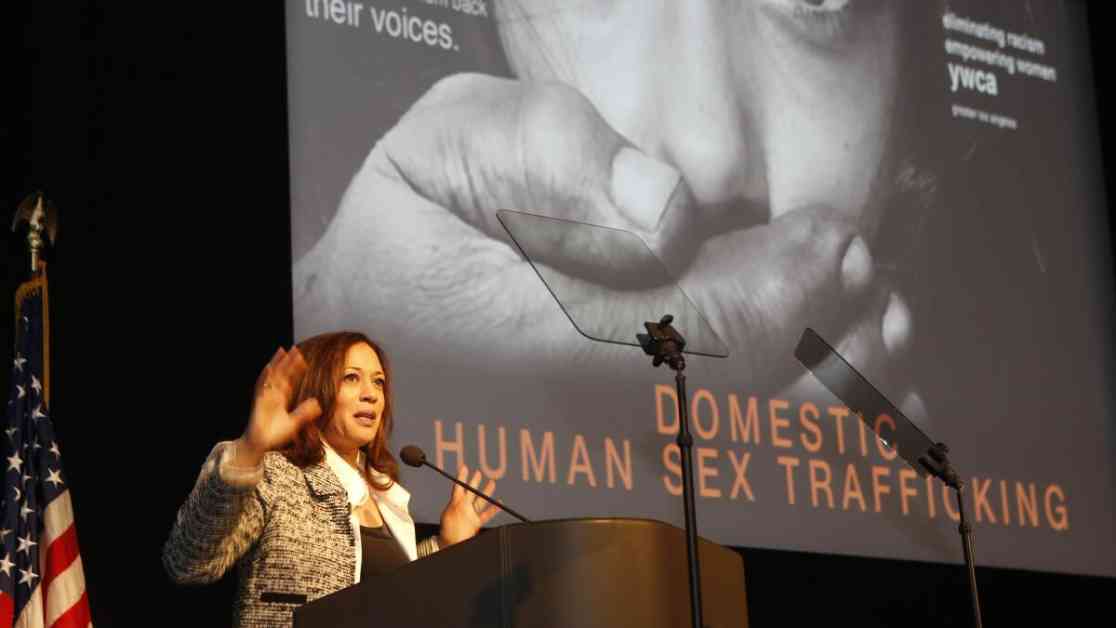Kamala Harris’ Crime Record: Progressive or Moderate Approach?
Throughout Kamala Harris’ political career, the question of what kind of prosecutor she was has been a topic of debate. As a former San Francisco district attorney and California attorney general, she has been characterized as both “soft” and “tough” on crime, labeled as both a progressive and a moderate. Her supporters and opponents have contributed to this debate by emphasizing different aspects of her record, depending on the office she was seeking.
Now, with Harris’ record as a prosecutor under scrutiny in the presidential race, many voters are unsure of where she stands, especially in comparison to her opponent, former President Trump, who has a tough stance on crime. The Trump campaign has accused Harris of being “soft on murderers, gun criminals, and drug dealers,” claiming that she “helped destroy California.” However, many people who have worked with Harris as a prosecutor dispute these claims, stating that her record is more nuanced than these accusations suggest.
Harris began her career as a deputy district attorney in Alameda County before moving on to the San Francisco district attorney’s office, where she served as chief of the Career Criminal Division. She later ran the Family and Children’s Services Division in the San Francisco city attorney’s office. Despite criticism that her rise was due to political connections rather than talent, those who knew her during that time describe her as hardworking, dedicated, and skilled at her job.
One of Harris’ notable initiatives as district attorney was the Back on Track program, aimed at reducing recidivism among nonviolent, first-time offenders. To graduate from the program, participants had to meet certain requirements, such as earning a GED, finding a job, and remaining drug-free. Critics pointed to the program’s admission of undocumented immigrants without work eligibility, but Harris took responsibility for the oversight and quickly rectified the issue.
Critics, including Trump and the Heritage Foundation, have accused Harris of being “soft on crime,” citing disputes over homicide cases and lenient plea deals. However, Harris’ supporters argue that these criticisms are unfounded, emphasizing her focus on challenging traditional notions of being “hard on crime” or “soft on crime” to achieve better outcomes for communities.
Another controversial decision by Harris was her refusal to seek the death penalty for a San Francisco police officer’s killer, despite facing backlash from law enforcement and the community. Critics accused her of playing politics, but those close to her say that she stood by her principles and acted in accordance with her beliefs.
In addition to her work on criminal justice issues, Harris has also been praised for her efforts in addressing the housing crisis in California. She played a key role in negotiating with large mortgage institutions over improper foreclosure practices during the housing market collapse, ultimately securing a substantial increase in compensation for Californians affected by the crisis.
Despite facing criticism and pressure to reverse her decision, Harris stood by her choice, demonstrating her commitment to data-driven decision-making and her willingness to take risks for the greater good. The deal she negotiated with the banks, while not perfect, helped many Californians stay in their homes and has been recognized as one of her signature accomplishments.
In conclusion, Kamala Harris’ record as a prosecutor reflects a nuanced approach to criminal justice, balancing compassion and accountability in her pursuit of justice. Her initiatives to address recidivism, housing issues, and transnational gangs along the U.S.-Mexico border demonstrate her commitment to reform and her willingness to challenge traditional norms in pursuit of better outcomes for communities. Despite facing criticism and controversy, Harris has shown resilience and determination in her pursuit of justice and equality.



























